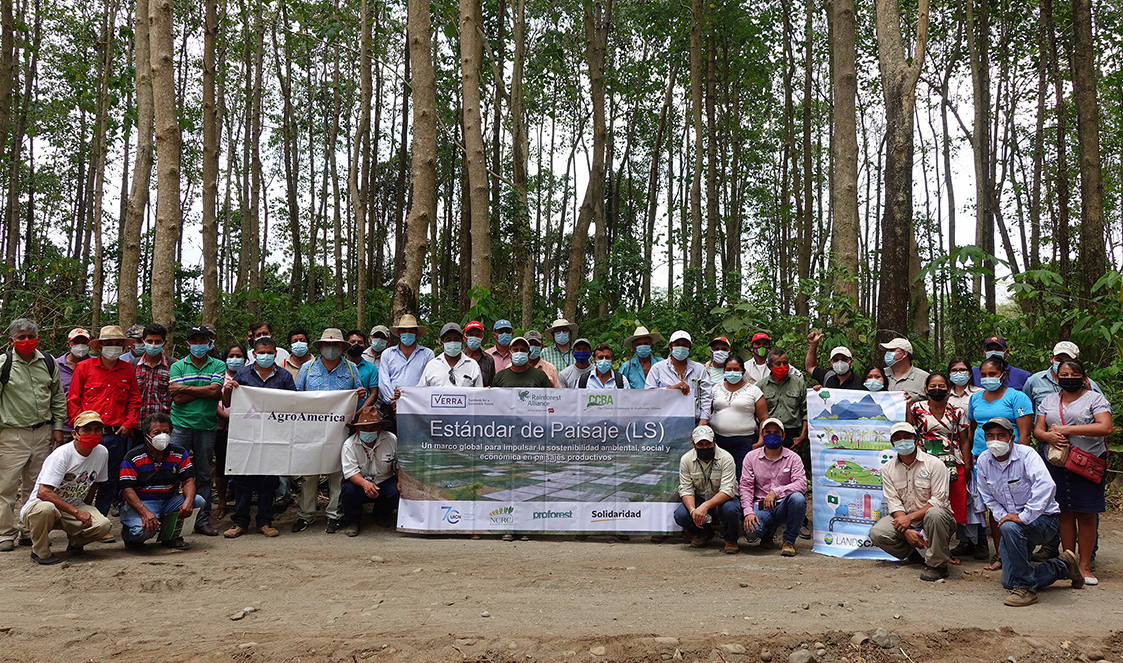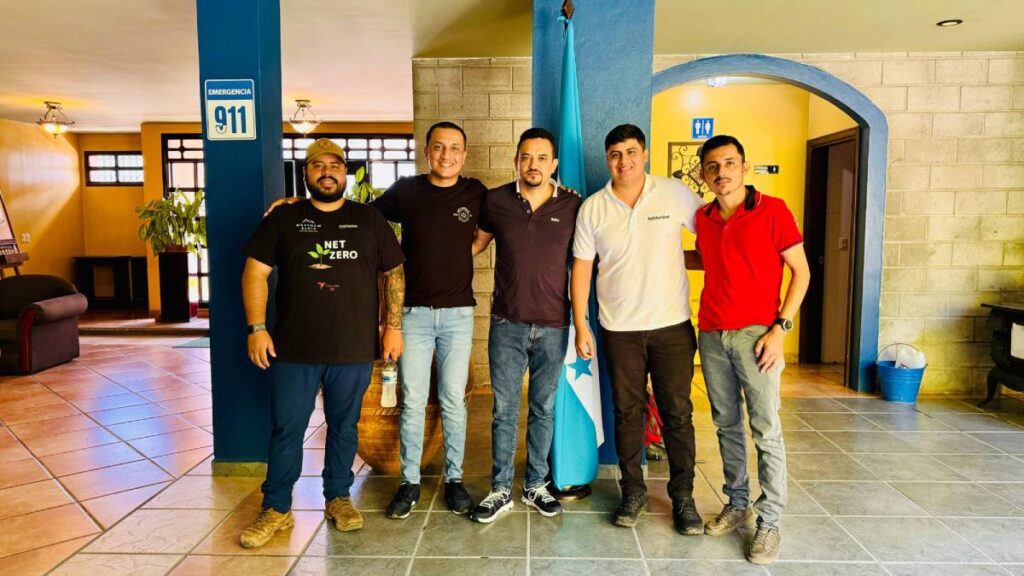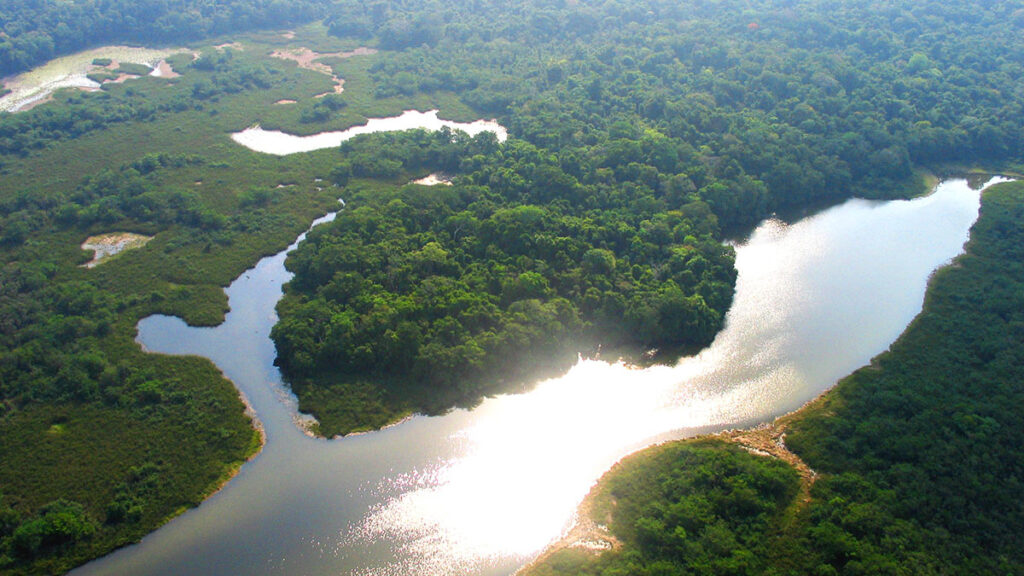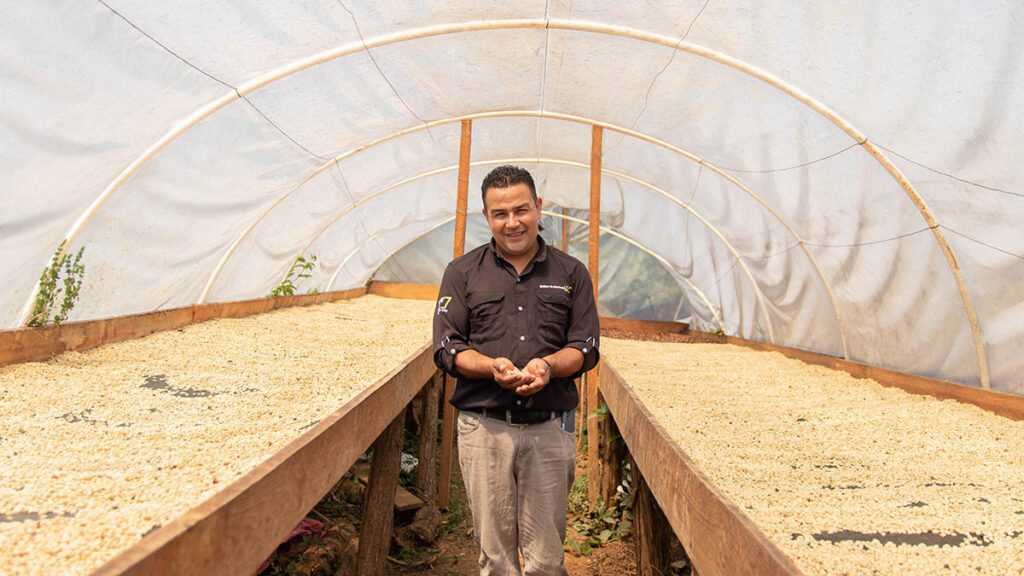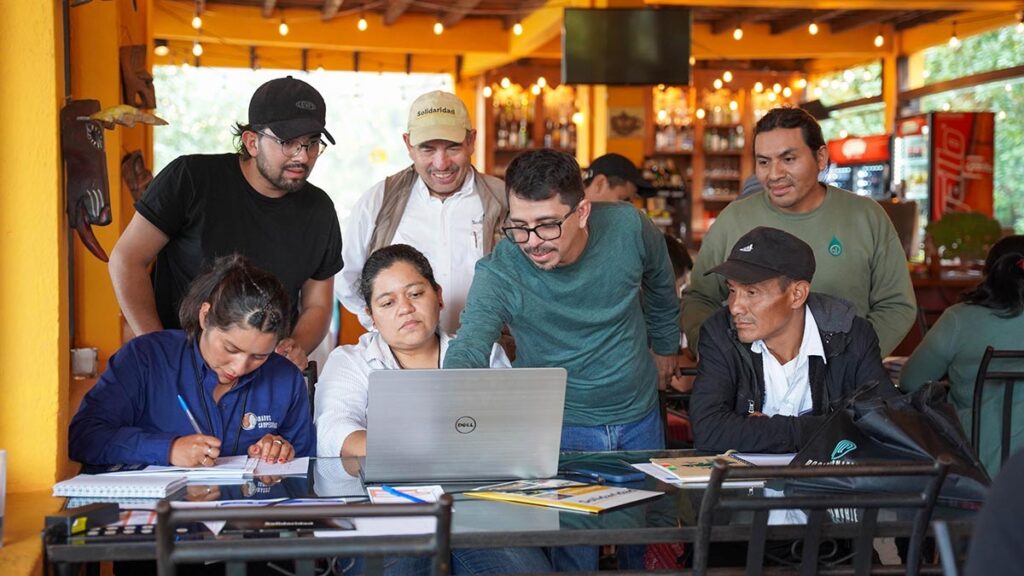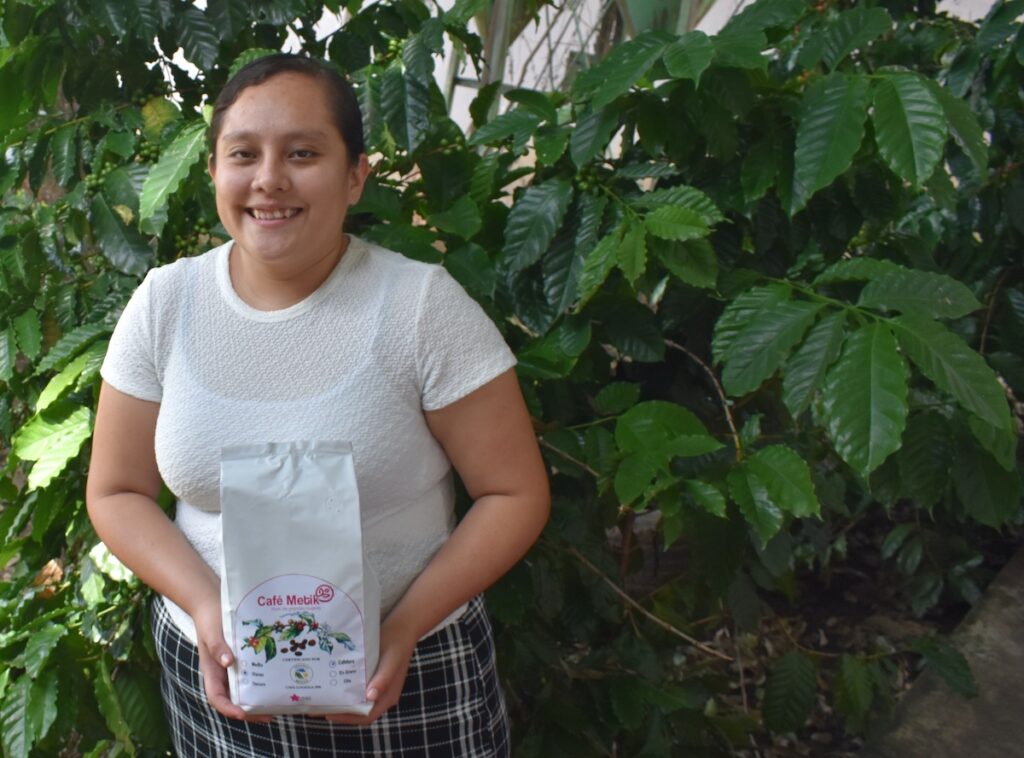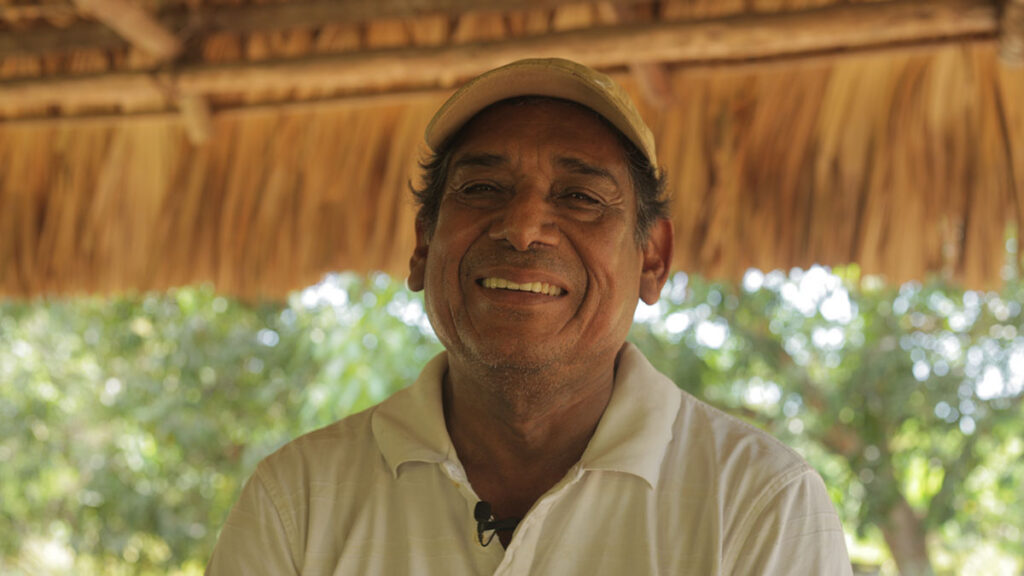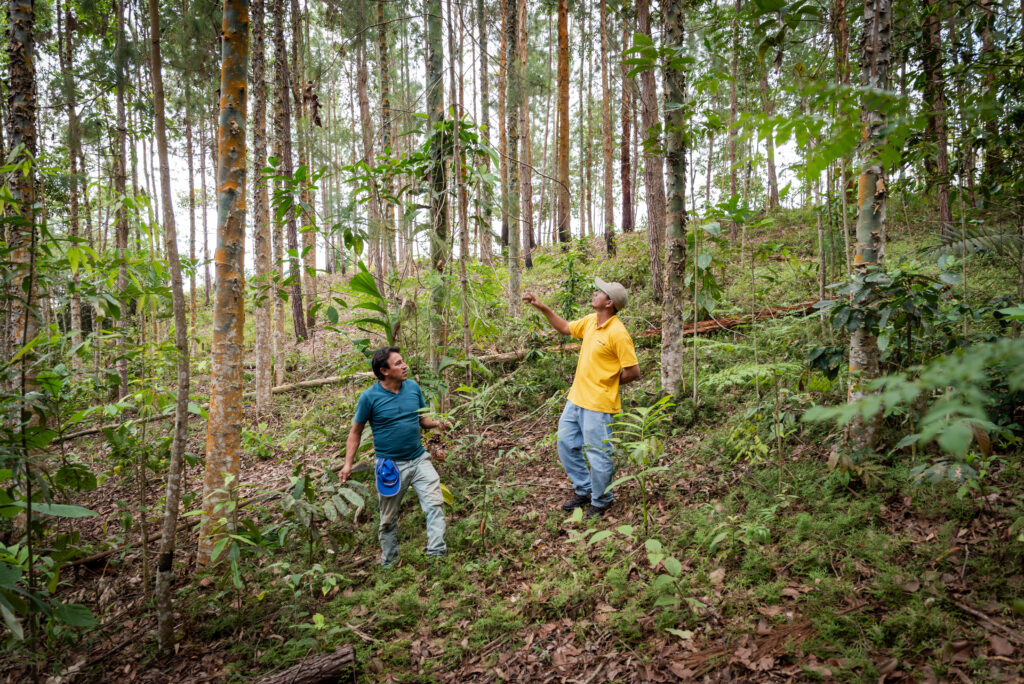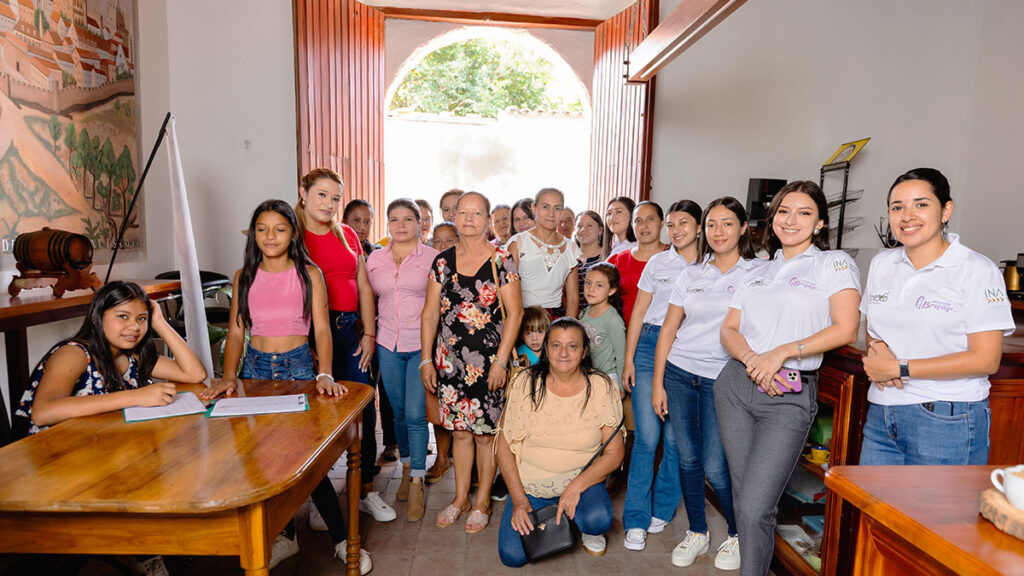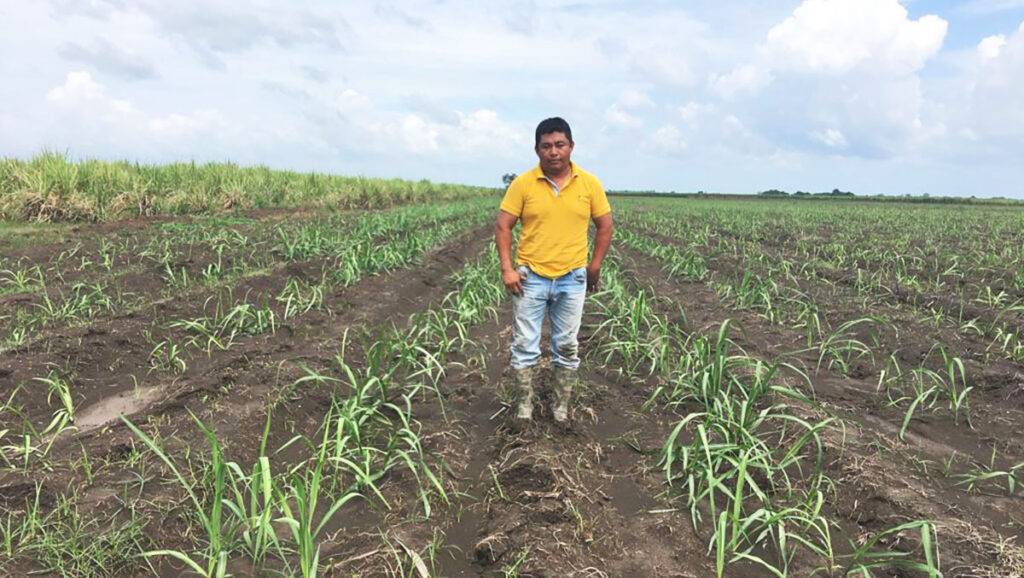Since 2018, Solidaridad has collaborated with the Rainforest Alliance to pilot the tool LandScale, which measures and provides access to data on the environmental, social and economic performance of a landscape, and then fosters actions and dialogue that promote sustainability.
Partnerships that encourage the recovery and protection of forests
The Pacific coast of Guatemala is one of the most important agricultural areas in the country, where large-scale productions of bananas, oil palm and sugarcane flourish. However, the intensive use of natural resources threatens the landscape. In order to comprehensively address these issues within the landscape, we are working with the Rainforest Alliance and Guatemala’s National Forest Institute (INAB) in a pilot using LandScale.
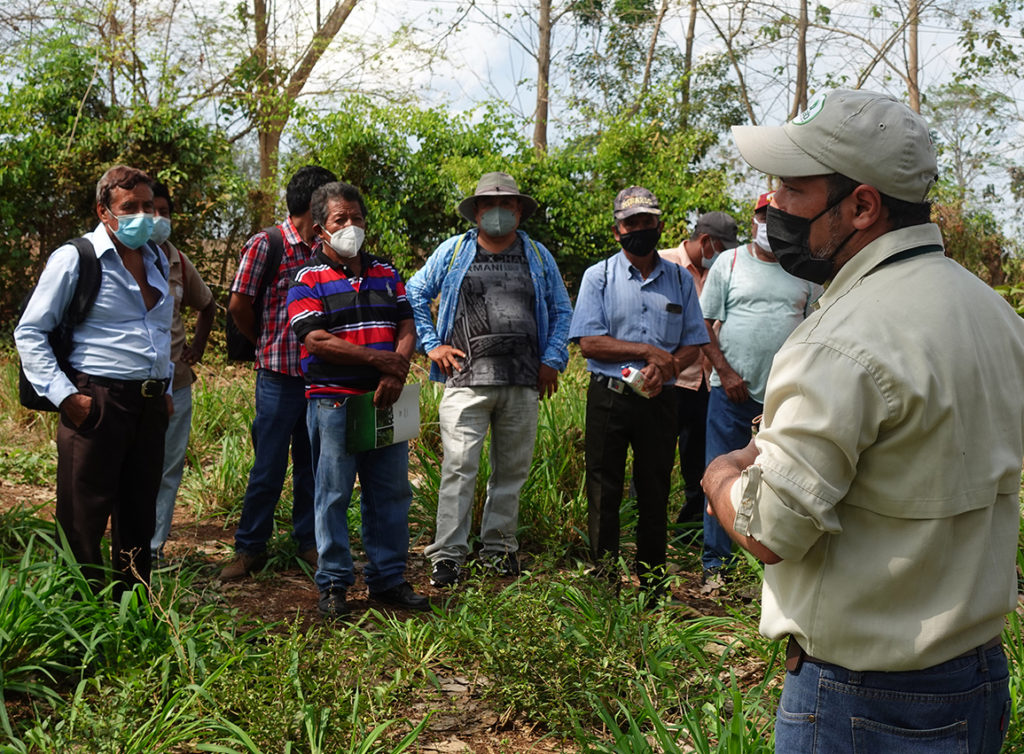
“This partnership with LandScale has come to strengthen many processes in the pursuit of landscape improvements. We are jointly developing a series of activities ranging from forest nurseries, community work, restoration and the visit [in March] to demonstrate agroforestry systems, reforestations and how to incorporate these into their existing productive activities to improve landscapes,” said Luis Alfredo Vela Herrera, INAB Regional Director.
LandScale organizes experience exchange visit in the forestry sector
In March 2021, LandScale partners in Guatemala carried out an experience exchange visit in which the participants, from different communities on the southern coast of the country, learned about the benefits of the agroforestry system, including sustainable management practices and rational use of plantations, how forests can be recovered and protected in the region, while promoting the economic and environmental sustainability of the landscape.
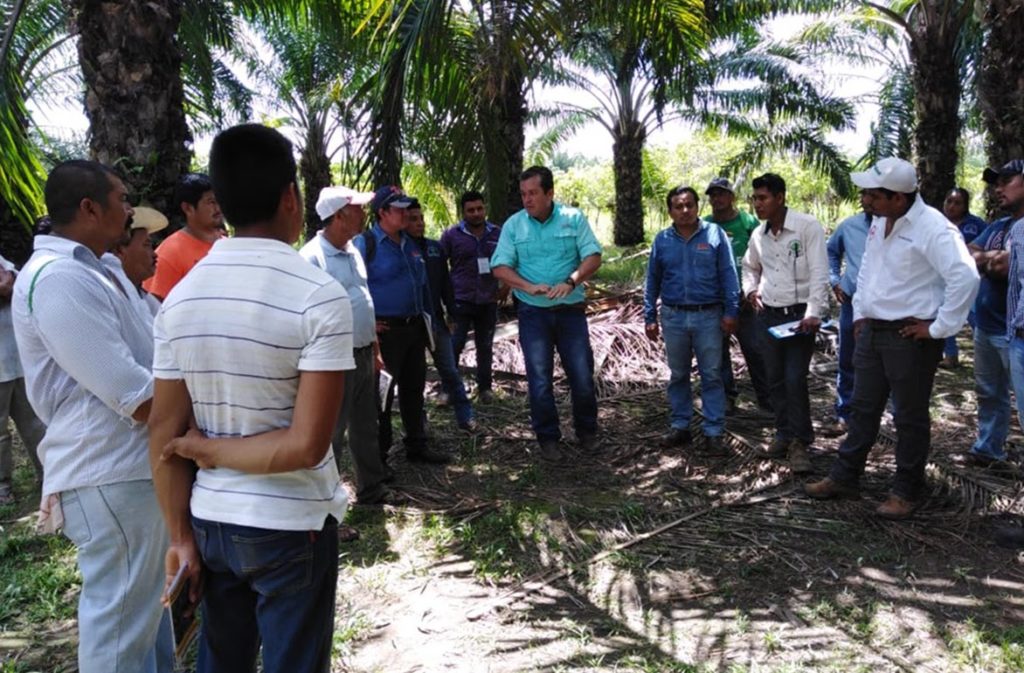
Sector transformation in palm oil
Through the Mesoamerican Palm Oil Alliance, MAPA, Solidaridad gathers more than 55,000 stakeholders along the entire palm oil supply chain in the region.
“The objective of the visit was to let interested communities know how they can access forest, agroforestry and silvopastoral incentives that the National Forest Institute is promoting, as a financial mechanism and a way to contribute to the environment,” said José Luis López, from Solidaridad’s Oil Palm and Biodiversity Programme in Guatemala.
Participants were invited to talks and demonstrations in which they learned about the need to maintain a balance in ecosystems for the landscape to be productive in a sustainable way.
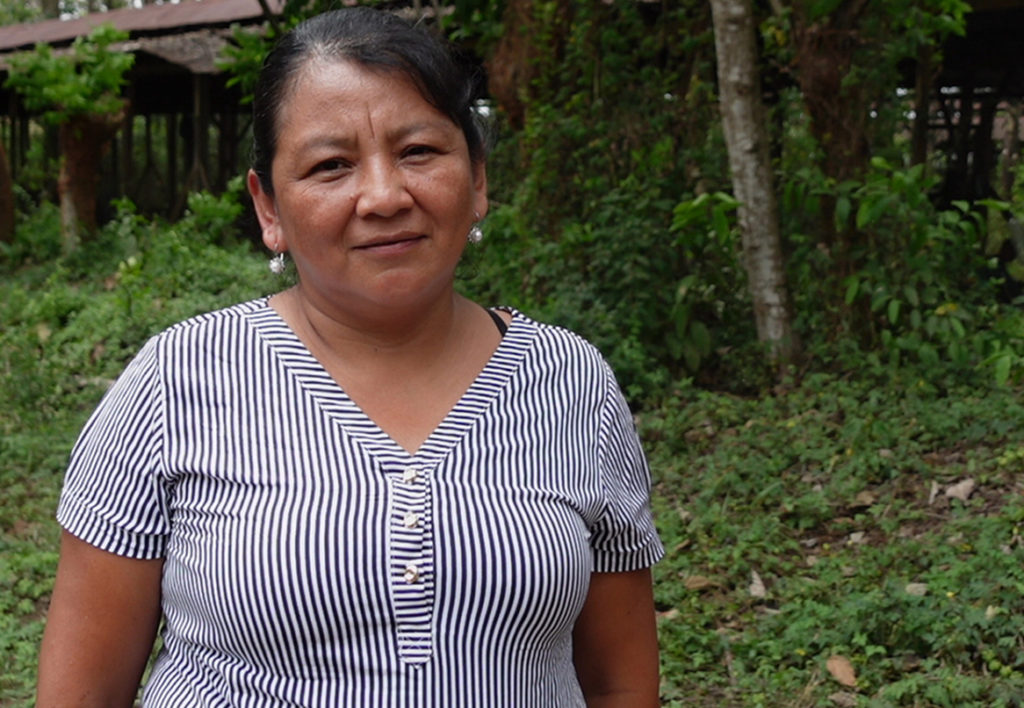
After seeing what goes into processing wood during the visit, Dani Gabriel Fuentes from El Chico village, expressed her conviction to protect trees, continue planting more native trees in her community and take care of wooden products in her home.
“The visit to the sawmill was a great [moment of] reflection for me, because in order to get a perfect piece of wood, a great portion of the tree was wasted. How many years did it take for that tree trunk to reach that circumference? … Every table, every bench, every chair that we buy is one less tree. And what if we don’t plant trees? [It makes no sense that] then we complain about the lack of rain … I do want to join the [forest incentives] programme,” said Dani.
LandScale and partners launch regional “Save El Manchón” award
In April 2021, LandScale partnered with six other organizations to launch the regional “Premio Salvemos El Manchón 2021,” a contest inviting citizens, institutions, organizations, technicians and companies to partner up to create a way to reduce pollution in the Ocosito River, which flows into the Manchón Guamuchal reserve, located in southwest Guatemala.
We are focusing on integrating the efforts of different stakeholders. Through the Salvemos El Manchón 2021 Award, we call on the brightest and most enthusiastic minds to seek solutions to save the Manchón Guamuchal and urge them to come up with holistic initiatives that go beyond the special protection area.
José Luis López, solidaridad
The winning proposal will receive $10,000 in seed money. The Award will subcontract an institution to provide technical-business support, complementing the technical support provided by partner institutions.
The Manchón Guamuchal is a special protection area that provides multiple benefits, such as carbon capture (by contributing to the reduction of emissions) and the filtration of nutrients and sediments in Guatemala’s southwest region. In addition, el Manchón provides a natural disaster barrier for the coast. El Manchón, encompassing 7,650 hectares of mangroves, flooded areas and coastal lagoons is one of the Central American landscapes Solidaridad is focusing on in an effort to conserve the more than 500 species, including birds, fish, crustaceans, amphibians and reptiles that call it home.
Three components of LandScale that drive sustainability in the landscape
LandScale provides a common framework for understanding issues and tracking progress within a landscape, through three main components:
- Assessment Framework: First, the landscape is assessed, using the holistic framework and the online tool that contains goals, indicators and performance metrics, focused on results, not practices. This is divided into four pillars (ecosystems, human well-being, governance and production) each with specific indicators, that are aligned with the sustainable development goals.
- Verification Mechanism: The results are then verified through a process that rates the accuracy of the evaluations. This allows greater confidence in the knowledge and results obtained.
- Reporting Platform: Finally, the impact is communicated, using the online tool to easily track evaluations, make claims, and publish results reports.
LandScale provides access to reliable information on a landscape’s sustainability performance, enabling alignment of local and global action and incentives to achieve sustainability improvements at the landscape scale.
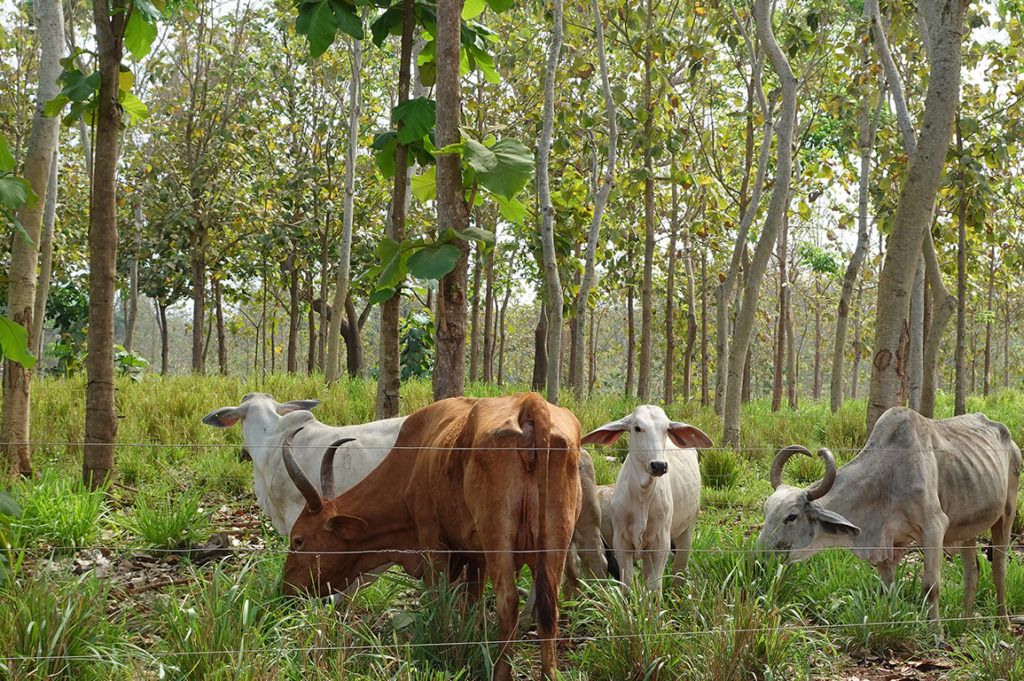
Next steps for Solidaridad and LandScale
Since 2018, Solidaridad has supported Rainforest Alliance, Conservation International and Verra in the development of the tool, formerly known as Landscape Standard.
“The next step in the LandScale initiative is to continue contributing with the various stakeholders, so that they can reach consensus on the activities that will contribute to common objectives and share the achievements in a way that has a positive effect at the landscape level,” added José Luis.

